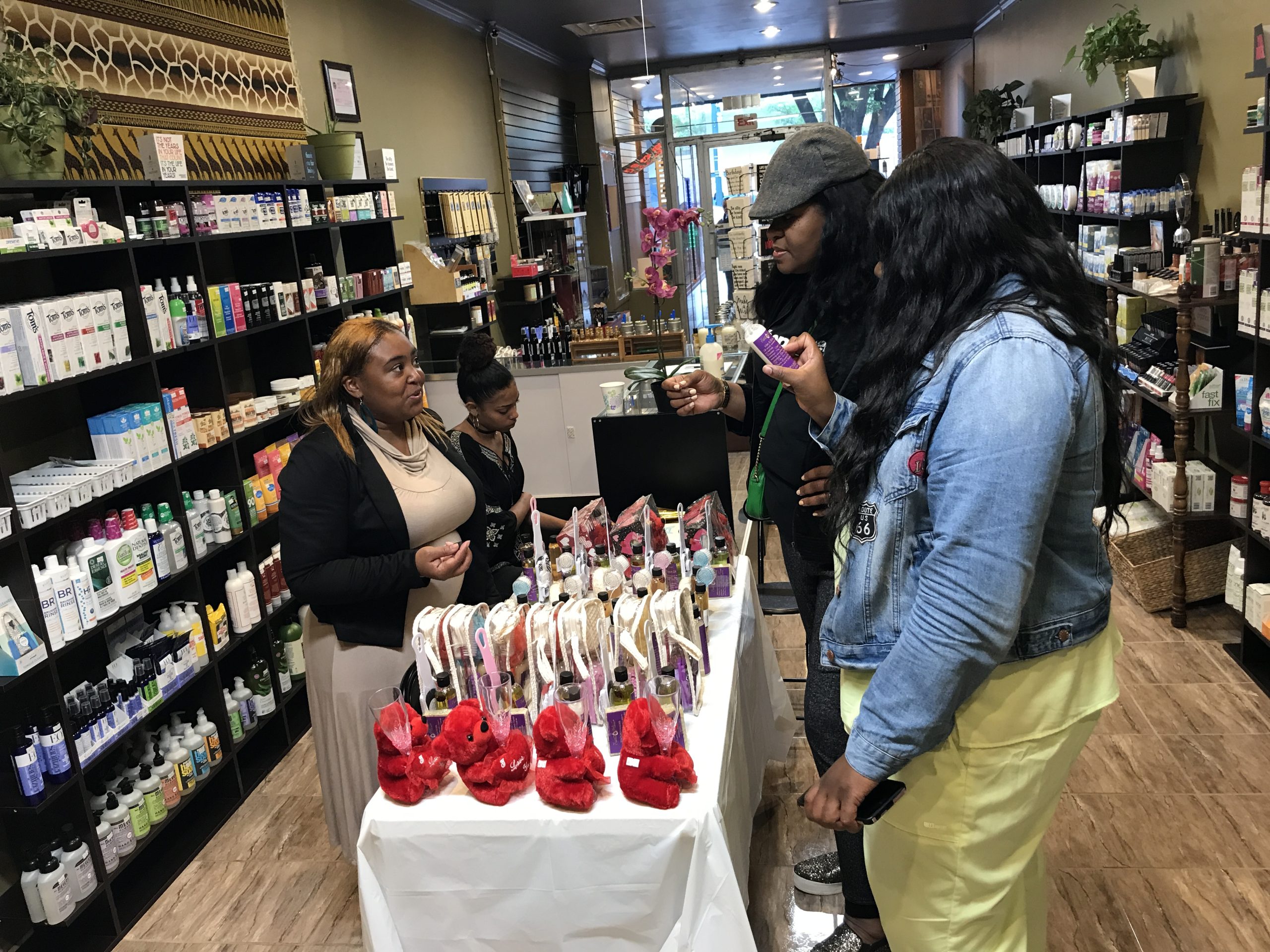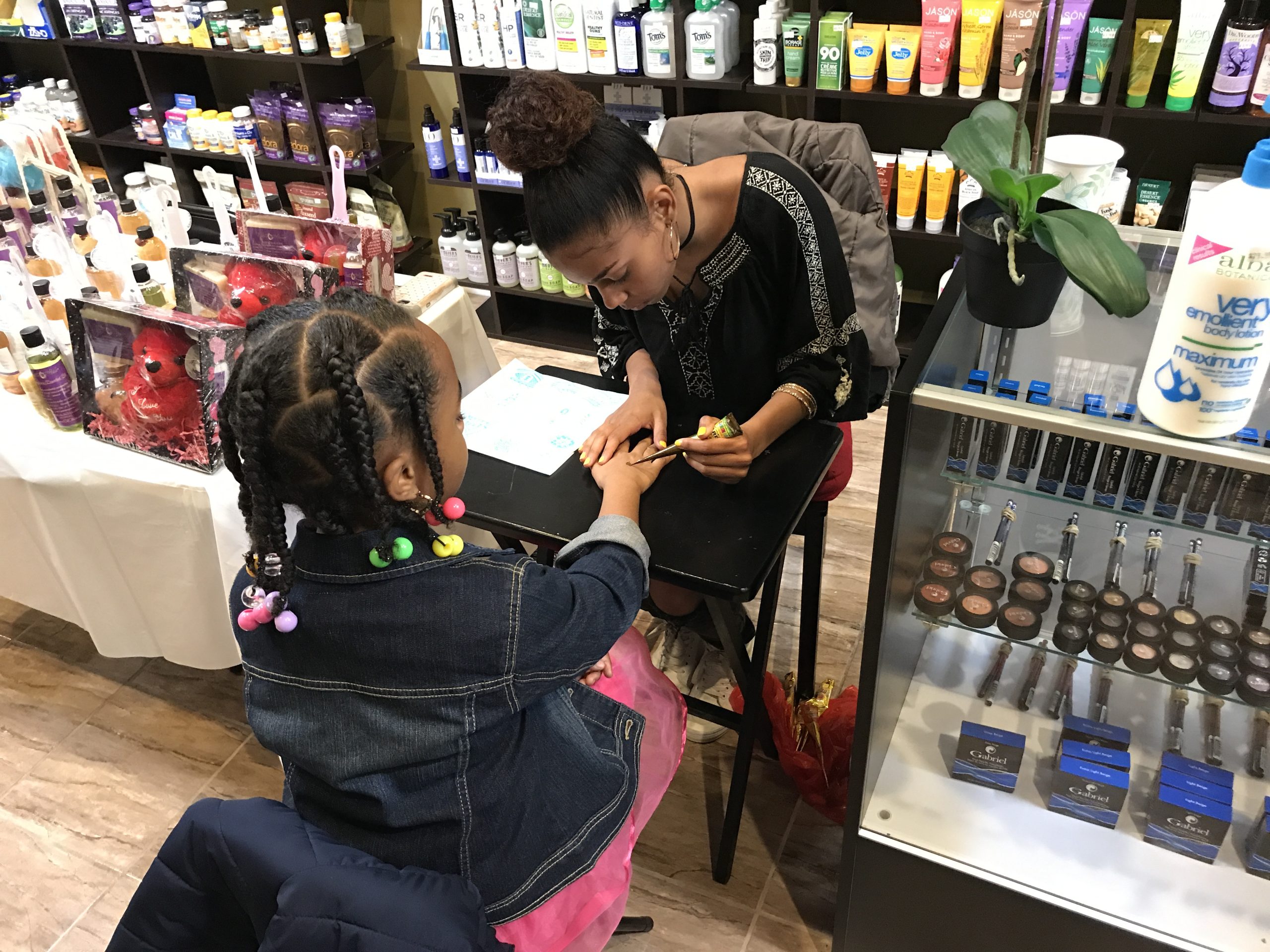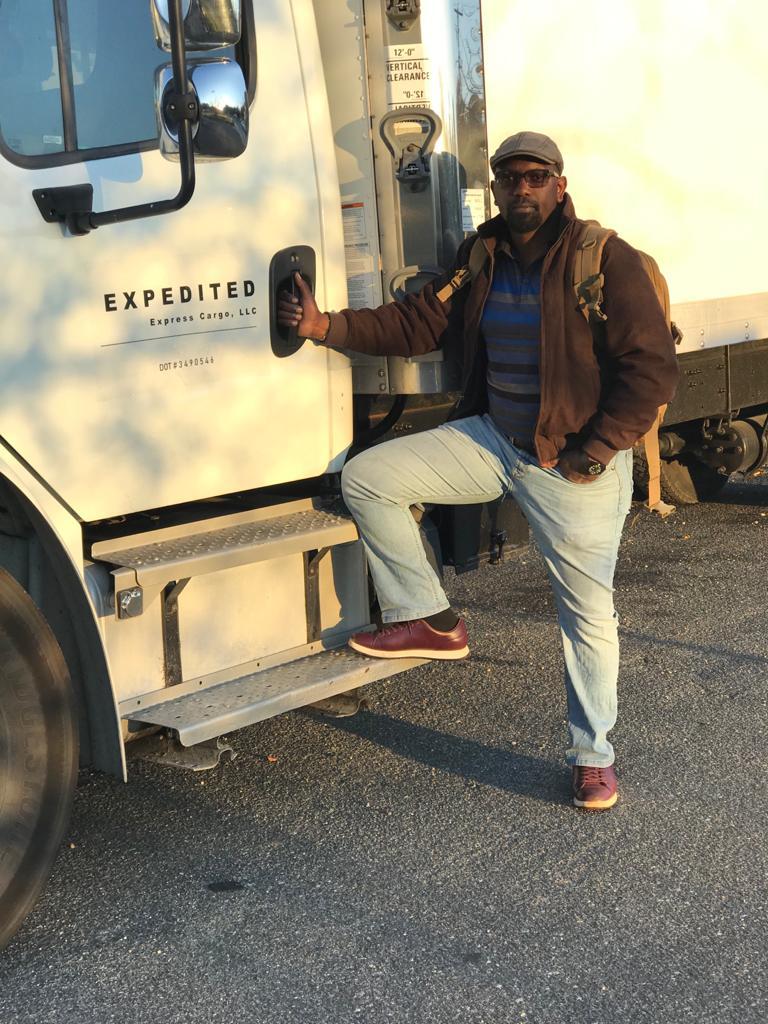Entrepreneurship always takes a leap of faith, or as Edward Mariga describes it, a “jump of faith.”
Leaving a secure job isn’t for the faint of heart, but Edward had been ambitious since he was young and knew he was destined for bigger things than working for someone else. Like so many aspiring business owners, he saw how his current employer was conducting business and thought, “I can do better.”
He left behind a management position, a steady paycheck, health insurance, and the other perks offered by his employer. Instead, he chose to follow his passion for health and nutrition and open his own retail store.
His retail store became a thriving enterprise—one that he eventually sold to start another business. This is Edward’s story, and he hopes it serves as inspiration for others.
Life stages bring life changes
It was 2015. Edward had a good job. A management position, good salary, nice benefits, and a 401(k). He enjoyed his job but having an entrepreneurial spirit, his active mind knew there were things that could be done better.
Anyone who has ever wanted to work for themselves knows what he’s talking about. On top of this, there was wage stagnation.
Edward was young, and ambitious, and between his frustrations on the job and lack of salary increases, he started making plans based on his love for the health and nutrition space.
Everything seemed to align; he felt it was the right time in a young and growing market, and his calculations told him he had enough money to get started.
“I felt like if I don’t take this moment, I don’t think this opportunity will come back again.”
Now it was time to do the legwork to get the business up and running, and that presented its own challenges.
Finding the right space was just the beginning
Edward did his homework. He knew he wanted a retail space and homed in on his desired area. He was looking for a nice building and a good customer base with capacity for growth where people are tuned in to natural and organic products.
Finding this wasn’t hard, but unfortunately, that customer base tends to live and shop in affluent areas, which means rents were very high.
He took another leap of faith and signed a 3-year lease at $3,000 a month before he even registered his business. The permit process, you see, requires a physical address for your business location even before you know your business will get registration approval.
Fortunately, the business was approved, and Edward eagerly began renovating his retail location.
Renovating a retail store is expensive. Every business owner has a vision for how they want their business to look, a certain impression they want to make, and they want to create an atmosphere where customers enjoy the buying experience.
In his excitement, Edward’s eyes twinkled with thoughts of this beautiful counter or those fancy shelves. But balance is important, as Edward learned. A beautiful store with few or no products on the shelves isn’t the way to start what you hope will be a profitable concern.
“For anyone just starting a business, my advice would be to spend less on the renovation process and more of your money on the product. Because, for me, by the time the renovation was done, I was left with much less money than I expected. And it wasn’t enough to buy all the products I wanted.”
So Edward secured some lines of credit from his bank to buy his products. With a laugh, he recalls how a few months down the line, he saw that his customers didn’t even notice the fixtures—they wanted to know about the products. And because he spent all that money on renovations and had to borrow to buy inventory, he spent a lot of money in the first few months.
Things were going well, but Edward was just breaking even and faced his next challenge.
His business wasn’t generating an income, and that’s not tenable. Here’s where the twist of fate came in that changed everything.
A customer walks into a retail store…
You never know where inspiration will strike or from what quarter help will come.
One of Edward’s customers happened to be an artist, and she created the store logo, which Edward really loved. As fellow business owners, they discussed both the rewards and challenges that come with entrepreneurship, and one of the biggest issues for any small business is money.
Edward learned that when his artist friend started her business, she worked with Life Asset to get the funding she needed. She urged him to call, and he did.
He was pleasantly surprised with the personalized help he got as well as the product offerings.
One thing that Edward particularly liked about Life Asset was the fact that they don’t just loan money. They provide resources and support. Not just in terms of helpful website links and information, but the connections with like-minded business people as well as those who could provide products.

He connected with a group making body products and couldn’t get them on store shelves. And, as we know, Edward has shelves with nothing on them.
He worked out a deal where he would put products on the shelf, and when they sold, he would get a percentage. This meant fewer out-of-pocket costs for him, and if he didn’t have the money to buy product, his shelves could remain stocked.
“That network connection was very, very critical. The loan part that I got from Life Asset really, really, really helped. But the connection that I had with the other group members and their partnership really helped the business succeed. If it wasn’t for that, honestly, I think the business would have closed within a year.”
The partnerships with other Life Asset clients kept his business going, and his new supplier network had customers of their own they sent his way. They boosted his business among their large customer base on social media.

As word got around, Edward began hosting events that offered fun and music and products. His new business relationships, coupled with these events, created a community of those who shared his aspirations. It was symbiosis: everyone benefited, including the artist who rented space inside his store.
If you thought that Edward was going to just rest on his laurels, you would be wrong.
Time for a different plan

When Edward called Life Asset, he was connected with John. In the course of their dealings, they developed a great personal relationship. They would have lengthy conversations during off-hours and were constantly in touch.
So when Edward wanted to sell his now-thriving business after three years, John was who he called. They discussed his ambition to start a delivery service, and John was very supportive.
Knowing the importance of keeping loan money circulating for others, he paid off his Life Asset loan but still kept in touch with John.
In the early days of his delivery business, Edward didn’t need money from Life Asset, but his friendship with John was still going strong. So, when Edward got into the trucking business and had bills due before invoices could clear, you know who he called.
John shepherded him quickly through the loan process, which helped Edward keep a consistent amount in his account and pay his bills while providing the buffer he needed to keep going.
“Life Asset really saved me at the beginning of my retail business. For the trucking business, it really provided the lifeline because I had payments due that were bouncing. These payments were for critical things. You can lose a permit or your insurance because the payment is not made. So Life Asset really saved my business. You see, that kind of support is amazing.”
The personal relationship he has with John is part of what sets Life Asset apart from other funding services. As Edward says, it’s not like talking to a bank. He could discuss all of his issues with John, including credit and payback issues, and knew he would be met with understanding and compassion.
Edward says he would think twice before going to a bank; he’ll always call John.
Expansion is in the future plans for Edward’s delivery service, so John may be hearing from him sooner rather than later, but for now, Edward is content and comfortable with driving solo. But he knows that when he’s ready, John and Life Asset are standing by.
